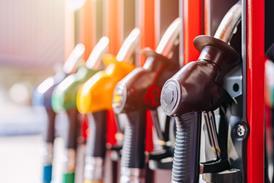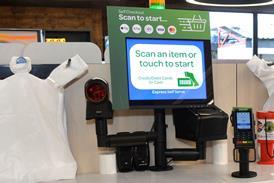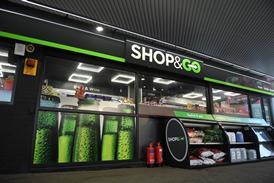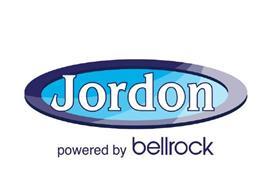With her sights set on growing the business profitably, Melanie Lane is currently relishing her role as general manager, UK retail, at Shell. She has been with the oil company for 13 years working across all elements of retail marketing, network, sales and strategy in a variety of global, regional and local roles based in London, Australia and Italy. She returned to the UK business in her latest role last August.
"I’ve been backwards and forwards, around the world, but have always been in retail," she explains. "The role of general manager pulls everything together. It’s an exciting time for me, but also for the company, and as an industry. It’s a very competitive environment. The challenge is how to meet customer needs and grow market share profitably.
"What we’ve done very well in the UK, is to grow the business year-on-year, through offering competitively priced, quality fuel. Our market share has grown and we’re neck and neck with BP."
The subject of ’competitively priced fuel’ is a controversial one many in the industry have for some time been spitting feathers about Shell’s low pricing policy, seeing it as madness rather than competitiveness. Lane insists it is a core and successful part of an overall offer to maintain and grow a loyal customer base. She says the competitive fuel price display plays a key role in that.
"Where we’re up against the hypermarkets, we know that if we’re not competitive we lose business." In fact concern about the cost of motoring is one of four key areas the company has identified as being of most importance to its customers, and central to the plans to achieve its growth targets. Initiatives such as the Shell Drivers’ Club offering money-off vouchers, and the link with Barclaycard Freedom rewards scheme, are core to the ’cost of motoring’ consideration. The other areas include quality of fuel; time (people hate refuelling); and environmental impact.
Lane says the fuel story is already positive fuel quality is high, and V-Power, although a niche product, is a strong brand with a loyal following. She says it represents a "significant percentage" of fuel sales. The link with Formula 1 obviously adds to the credibility of the Shell fuel brand.
Improving speed of service is an ongoing process, but Lane claims Shell sites score highly in mystery shopper surveys, particularly when compared with competitor sites. Pay-at-pump systems, to speed up the forecourt experience, have already been rolled out to one third of the company’s sites.
"Pay-at-pump has eased congestion on high throughput sites," says Lane. "It allows people to just buy fuel quickly if they want to. But if they then want to go in the shop they are happy to browse. We have found pay-at-pump good for pushing shop sales up and unlocking store value."
Other store developments have seen a collaboration with Waitrose, currently running as a trial on six sites. Waitrose convenience products are offered alongside Shell’s current shop offer. Items such as sandwiches, wraps and snacks, as well as a small selection of grocery items are on offer, but no huge investment is required in reformatting the store, keeping costs to a minimum. Lane is extremely pleased with the trial so far, especially because the Waitrose brand resonates very well with women, a particular target in a male-dominated customer base "we want to be sure we’re appealing to everybody". A decision on the rollout will be taken later this year.
As far as the environment is concerned, Shell has just introduced innovative energy-saving features at 200 petrol stations across the country in a bid to increase energy efficiency, cut carbon emissions and reduce energy costs. Called The Shell EnergySave Sites programme, the company is aiming to achieve an average drop in energy consumption of 25% by introducing high-tech lighting and improvements in the cooling and heating systems. It has already achieved Carbon Trust Standard Company (CTSC) certification for its three pilot sites (Haywards Heath, High Wycombe and Salford Quays) and now aims to achieved the CTSC standard across all Shell EnergySave sites. The same energy efficiency approach will be applied to all new UK-built Shell forecourts, according to Lane.
"It makes good business sense to cut our energy costs. We also have a broader responsibility to conserve energy, so we are pleased to able to achieve both goals with these changes."
Lane claims that dealer business has grown significantly in the past five years currently 339 dealers out of a network of 916 sites and the company will start to engage more with them than it has in the recent past, with a dealer meeting proposed for later this year.
As for the recent statement from Shell’s CEO about withdrawal from 35% of the company’s fuel retail operations worldwide, Lane is not expecting it to affect the UK retail business.























No comments yet